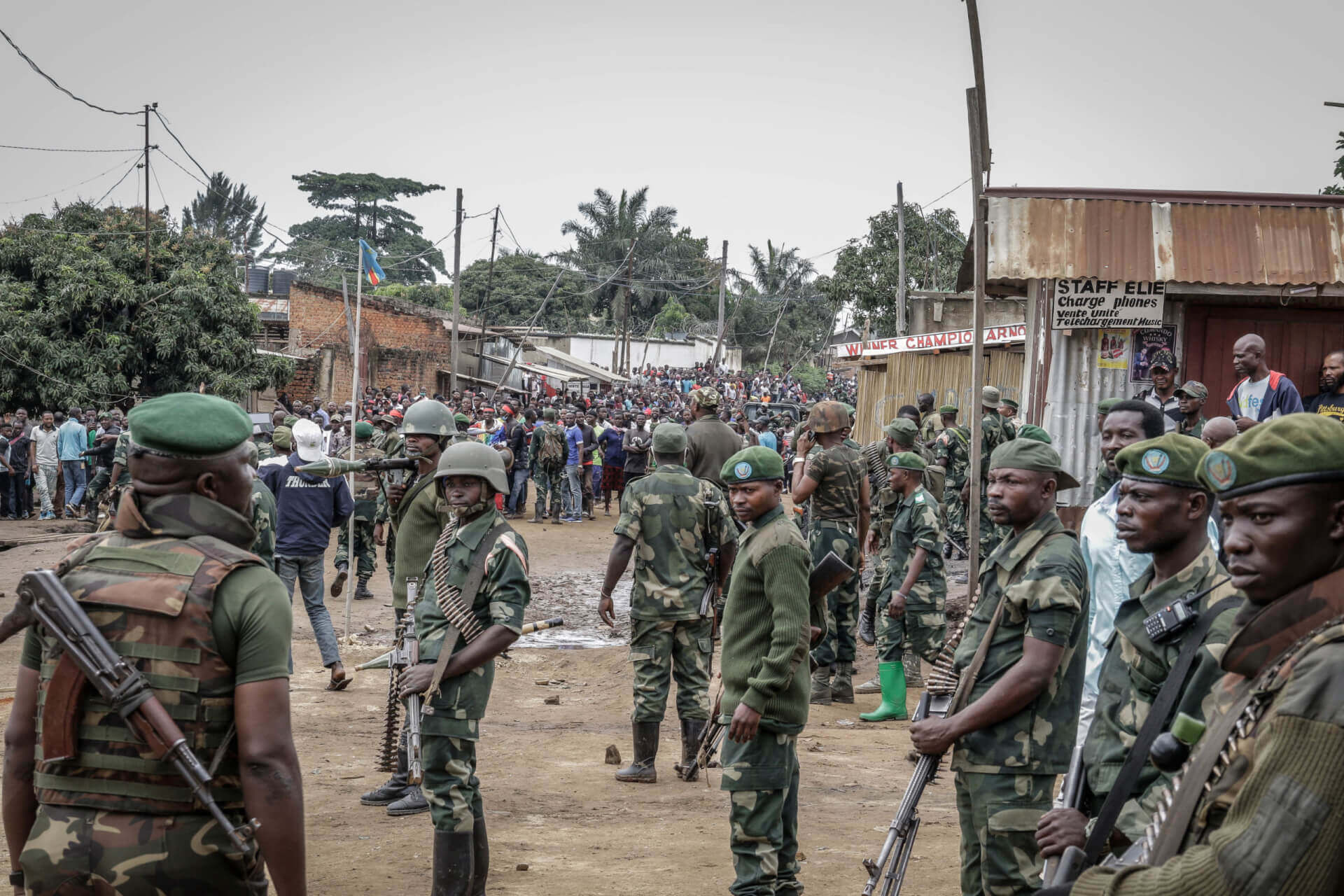A week after peace talks with the Congolese government in Kenya, rebel fighters launched an attack on villages near a gold mine in the Ituri province, killing at least 52 civilians, including women and children, and burning multiple homes.
On Sunday, fighters from the CODECO rebel group launched an attack on the eastern town of Kablangete after which at least 100 civilians have gone missing. They also torched the neighbouring village of Malika, where United Nations spokesperson Stéphane Dujarric said they “reportedly raped six women.”
The Democratic Republic of Congo’s (DRC) Ministry of Communications has slammed the ‘terrorist’ group for its “barbaric and cowardly act.”
Similarly, UN Secretary-General António Guterres condemned the “callous attacks” and urged the rebels to “lay down their weapons through the Disarmament, Demobilization, Community Recovery and Stabilization Programme.”
🇵 🇭 🇴 🇹 🇴 🇴 🇫 🇹 🇭 🇪 🇩 🇦 🇾#MONUSCO and FARDC are on all fronts fighting armed groups in Ituri. In this photo on 4/4, a joint security patrol of the two Forces in the locality of Tcha 40km from Bunia ,Djugu territory, deterring any attack by assailants on civilians. pic.twitter.com/RTFuGkRbuw
— MONUSCO (@MONUSCO) May 6, 2022
He also called on Congolese authorities to guarantee the UN’s Stabilisation Mission in the country, MONUSCO, is granted “immediate, free and unimpeded access to the areas of the attacks to facilitate efforts to protect civilians.” In fact, MONUSCO, which has been deployed in the country for two decades, carried out a medical evacuation in Bunia.
Guterres also urged the Congolese government to “investigate these incidents and bring those responsible to justice.”
Eastern DRC is a hotbed for violence, with several different rebel groups operating in the region and fighting for control of the mineral-rich area. In fact, army spokesperson Jules Ngongo Tsikudi claimed that “people were caught in the crossfire” of a battle between CODECO and another rebel group in the latest incident.
CODECO rebels killed also at least 60 civilians at a displaced persons camp in the Djugu area in February.
Apart from CODECO, the Allied Democratic Forces (ADF), which has ties to ISIL, is also active in the region. In fact, last August, they reportedly “burned and hacked” 19 civilians to death in the Kasanzi village in the Beni territory of North Kivu. The group is designated as a terrorist organisation by the United and is responsible for over 6,000 civilian deaths since 2013.
Keeping in mind this constant state of instability, DRC President Félix Tshisekedi declared a “state of siege” in the Ituri and North Kivu provinces last April that is still in place. As a result, Tshisekedi replaced all civilian authorities in the two regions, whereby civil courts and tribunal transferred their jurisdiction to military courts. He argued that the security situation “constitutes a threat to the integrity of the DRC” and thus requires “exceptional measures.”
Congo's Felix Tshisekedi on Friday declared a state of siege over the worsening violence in the eastern provinces of Ituri and North Kivu.
— Saleh Mwanamilongo (@SMwanamilongo1) May 1, 2021
Announcing Tshisekedi's decision, government spokesman @PatrickMuyaya said: "The objective is to swiftly end the insecurity." #DRC #RDC pic.twitter.com/xNCoj8rPKj
To assuage the ongoing “humanitarian crisis” and organise manpower effectively against the Islamic rebels, Kinshasa’s army has been seeking joint operations with not just the MONUSCO, but also with the Ugandan forces. The two countries have historically been rivals and ended the war officially only in 2003, but DRC regards Kampala as responsible for the ongoing civil war.
The Congolese army has partnered with the Ugandan army to conduct joint air and artillery strikes against the ADF, which operates in both countries.
Prime Minister Jean-Michel Sama Lukonde has previously claimed that these operations, alongside the emergency declaration, have enabled the army to “reduce the area of action of the negative forces.”
However, local security forces claim that these measures have in fact ‘widened’ the ADF’s ‘range of action.’ In fact, Amnesty International claims that despite the emergency declaration being extended 22 times, the number of civilians who have been killed over the past year has actually doubled. The rights group highlighted that the civilian death toll between June 2020 and March 2021 was 559, compared to 1,261 between June 2021 and March 2022. It has also shed light on arbitrary detentions, and how “authorities are using military courts to prosecute state critics in unfair trials.”
The organisation’s director for East and Southern Africa, Deprose Muchena, has said, “In total disregard of the law, defence and security forces have been given broad powers that are not justified by the stated purpose of the state of siege, which they have used to silence anyone who demands accountability for the state’s actions in the conflict-stricken provinces of North Kivu and Ituri.”
Civilians have accused soldiers of murder, rape, extortion, torture, looting, force labour, and even working with the rebels.

